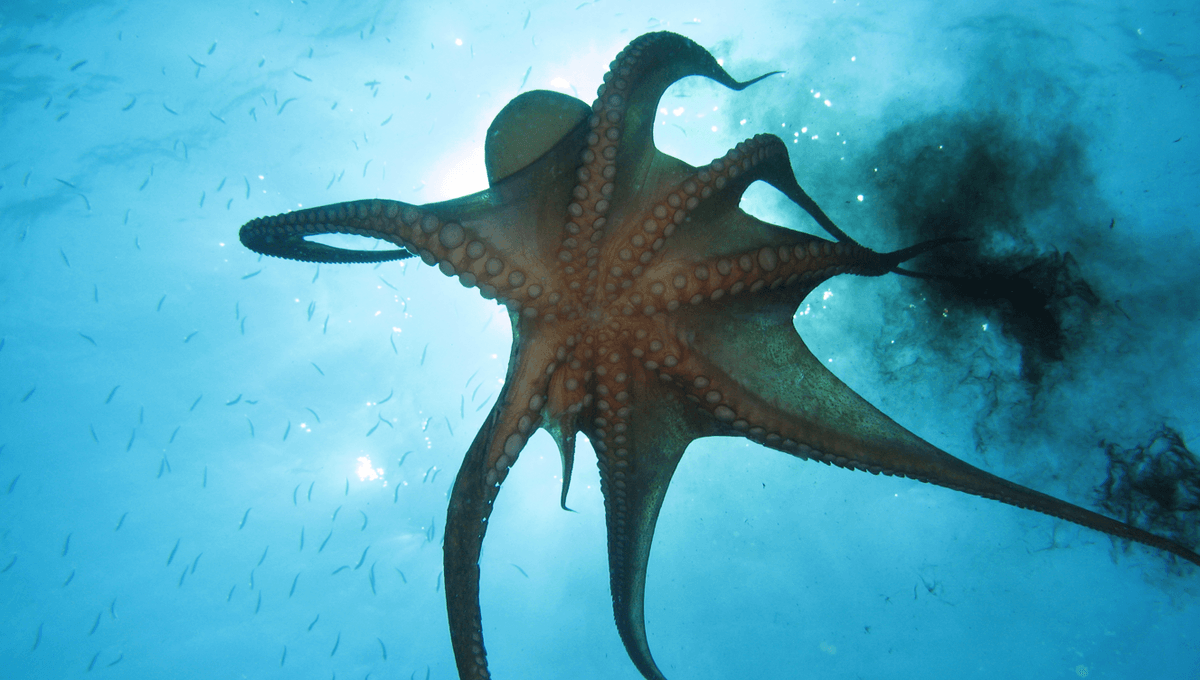
A groundbreaking bill to prohibit octopus farming could soon be passed in Washington state. If signed into law, it will be a world-first ban on the deeply controversial aquaculture practice that’s started to emerge.
The bill, HB 1153, passed the Washington State House of Representatives earlier this month and passed the Senate with a 29-20 vote on February 27. It’s now waiting on the desk of the Governor, who has three weeks to sign the bill or bin it.
“Octopus farming leads to suffering and sickness for one of the more intelligent and feeling animals in our oceans,” representative Strom Peterson who sponsored the bill said in a statement.
“It can lead to huge environmental and ecological effects as well. Octopus farming is harmful to the animals and the environment and is unnecessary. It’s time to move on,” said Peterson.
California and Hawai’i are also eyeing up similar legalization. This month, assembly member Steve Bennett introduced A.B. 3162, the California Oppose Cruelty to Octopuses (OCTO) Act, to prohibit octopus farming and ban the import of farmed octopus in California. Likewise, legislators in Hawai’i launched a similar bill called H.B. 2262.
This recent spurt of legalization comes in the wake of news that a Spanish seafood company, Nueva Pescanova, has set its sights on building an octopus farm in the Canary Islands. It’s currently waiting for final approval, but it would be the first commercial venture to rear and slaughter octopus on an industrial scale. If it gets the go-ahead, the farm has the hopes to produce around 3,000 tons of octopus each year, amounting to the slaughter of around one million animals.
However, the plan to build the huge facility has cooked up a fair amount of controversy among environmentalists and animal welfare supporters.
Octopuses are undeniably smart animals with a unique complex nervous system, capable of advanced problem-solving and learning. It’s even been suggested that they are sentient creatures with individual personalities.
Their evident intelligence raises some serious questions about whether it is ethically appropriate to exploit these animals for large-scale farming. Since 2019, numerous NGOs have expressed their deep concerns about the prospect of octopus farming becoming a new trend in the global food market.
“Farming carnivorous species like octopuses is inherently unsustainable, an antithesis to the principles of environmental stewardship and animal welfare that should guide our actions. The ecological footprint of such practices stands in stark contrast to the sustainable and compassionate food systems we strive to build,” Giulia Malerbi, Global Policy Lead at Aquatic Life Institute, said in a statement to IFLScience.
The Aquatic Life Institute, a US-based nonprofit that specializes in aquatic animal welfare, is one of the groups leading the charge. Together with over 140 other organizations, the Aquatic Life Institute sent a joint letter to the Canary Islands government urging them to rethink the planning application from Nueva Pescanova.
The Aquatic Life Institute has also been instrumental in the progress of the new HB 1153 bill. In November 2023, they sent letters to legislators in Washington state, urging them to pass the bill through the House. Since the bill has now reached the final hurdle, the NGO is very excited and has high hopes it will be signed into law soon.
“This law is not merely a reflection of our commitment to the well-being of octopuses, beings of remarkable intelligence and complexity, but it is a bold statement against the direction in which our food systems are perilously headed,” Malerbi told IFLScience.
“It underscores an imperative shift away from exploitative practices and it sends a clear message that the path to a sustainable future is not through the commodification of complex, sentient beings,” she added.
Source Link: World-First Bans On Octopus Farming Are Being Considered By Some US States